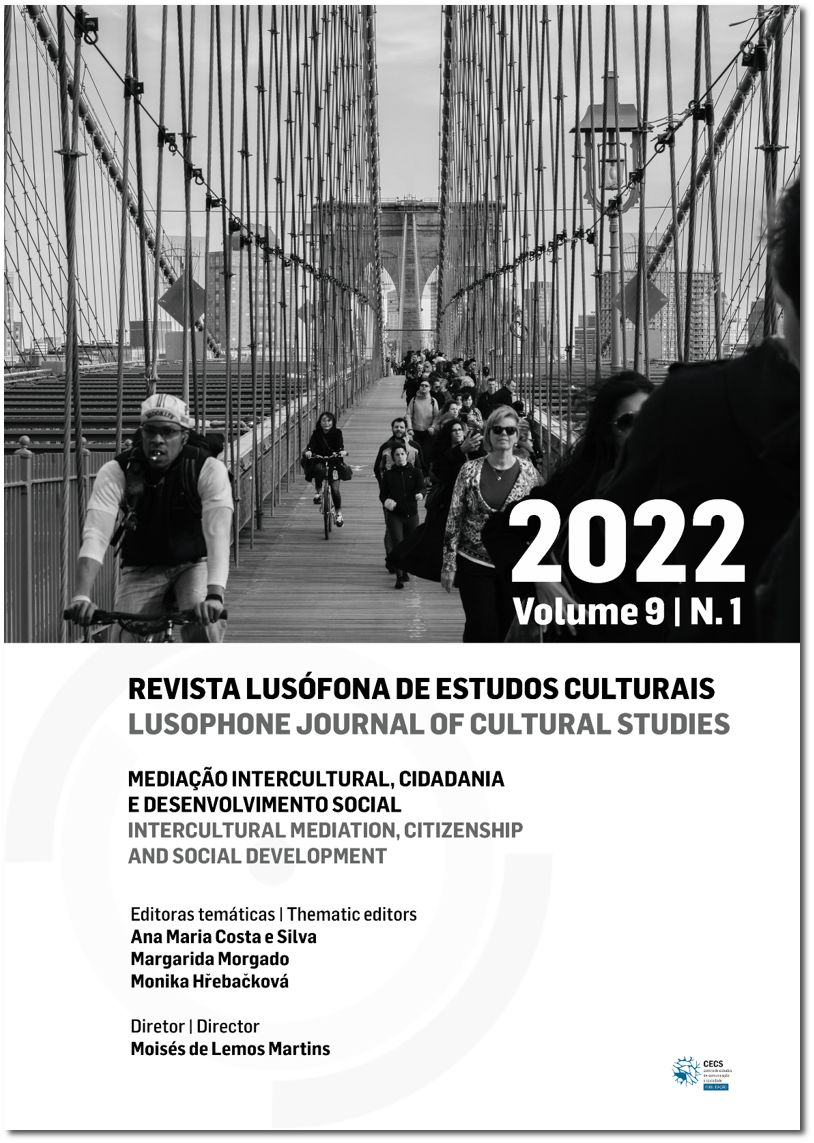Digital Political Communication in the Portuguese-Speaking World: Platformization and Engagement
DOI:
https://doi.org/10.21814/rlec.3765Keywords:
communication, political communication, digital, engagement-audience-political-party, Portuguese, Lusophone, social networksAbstract
This article provides an exhaustive analysis of the emerging digital political communication strategies in a seldom-studied area: the Portuguese-speaking world. Through a literature review and content analysis, 25 political parties from five countries and three different continents are studied. The results confirm emerging trends common to other recently analyzed places, such as innovation in digital storytelling, platformization and the trend towards engagement as communicative interaction. However, there are new trends toward instant messaging, podcasting, audience segmentation and engagement linked to the fight against fake news.
Downloads
References
Braga, S., Sampaio, R. C., Carlomagno, M. C., Vieira, F. A., Angeli, A. E., & Suhurt, J. F. A. (2017). Eleições online em tempos de ‘big data’: Métodos e questões de pesquisa a partir das eleições municipais brasileiras de 2016. Estudos em Comunicação, 1(25), 253–285. https://doi.org/10.20287/ec.n25.v1.a14
Canavilhas, J., Colussi, J., & Moura, Z. B. (2019). Desinformación en las elecciones presidenciales 2018 en Brasil: Un análisis de los grupos familiares en WhatsApp. El Profesional de la Información, 28(5), 1–9. https://doi.org/10.3145/epi.2019.sep.03
Chadwick, A. (2013). The hybrid media system: Politics and power. Oxford University Press.
Dhanesh, G. (2017). Putting engagement in its proper place: State of the field, definition and model of engagement. Public Relations Review, 43(5), 925–933. https://doi.org/10.1016/j.pubrev.2017.04.001
Ducrot, O. (1986). El decir y lo dicho: Polifonía de la enunciación (I. Agoff, Trans.). Paidós. (Original work published 1980)
Enli, G., & Moe, H. (2013). Introduction to special issue: Social media and election campaigns – Key tendencies and ways forward. Information, Communication & Society, 16(5), 637–645. https://doi.org/10.1080/1369118X.2013.784795
García-Orosa, B. (2018). Perfil de la audiencia de cibermedios: Representación discursiva y praxis del receptor 2.0. Palabra Clave, 21(1), 111–133. https://palabraclave.unisabana.edu.co/index.php/palabraclave/article/view/6840
García-Orosa, B. (2019). 25 years of research in online organizational communication. Review article. El Profesional de la Información, 28(5), 1–18. https://doi.org/10.3145/epi.2019.sep.17
García-Orosa, B. (2021). Digital political communication strategies. Palgrave.
García-Orosa, B., Vázquez-Sande, P., & López-García, X. (2017). Narrativas digitales de los principales partidos políticos de España, Francia, Portugal y Estados Unidos. El Profesional de la Información, 26(4), 589–600. https://doi.org/10.3145/epi.2017.jul.03
Gaudin, G. (2020). Movilidad y rugosidad en la comunicación política imperial: Las primeras gestiones en la corte de los miembros de la expedición de Legazpi a Filipinas (1565-1573). Nuevo Mundo. https://doi.org/10.4000/nuevomundo.79411
Góes, J. C., & Antunes, E. (2017). Journalism and the tale of the other: The invisibility of lusophones in Brazil and the identity erasure between us. Brazilian Journalism Research, 13(3), 36–59. https://doi.org/10.25200/BJR.v13n3.2017.993
Gradim, A., Serra, P., & Piñeiro-Naval, V. (2018). A presença da lusofonia no espaço epistémico das ciências da comunicação: 10 anos de estudos temáticos. Comunicação e Sociedade, 34, 183–196. https://doi.org/10.17231/comsoc.34(2018).2943
Grossman, G., Kim, S., Rexer, J., & Thirumurthy, H. (2020). Political partisanship influences behavioral responses to governors’ recommendations for covid-19 prevention in the United States. SSRN. https://doi.org/10.2139/ssrn.3578695
Ituassu, A., Capone, L., Firmino, L. M., Mannheimer, V., & Murta, F. (2019). Comunicación política, elecciones y democracia: Las campañas de Donald Trump y Jair Bolsonaro. Perspectivas de la Comunicación, 12(2), 11–37. https://doi.org/10.4067/S0718-48672019000200011
Izquierdo, F. P. (2017). Um reino e suas repúblicas no Atlântico. Comunicações políticas entre Portugal, Brasil e Angola nos séculos XVII e XVIII. Espacio, Tiempo y Forma, (30), 403–406. https://doi.org/10.5944/etfiv.2017.20214
Keller, T., & Klinger, U. (2019). Social bots in election campaigns: Theoretical, empirical, and methodological implications. Political Communication, 36(1), 171–189. https://doi.org/10.1080/10584609.2018.1526238
Kreiss, D., & McGregor, S. C. (2018). Technology firms shape political communication: The work of Microsoft, Facebook, Twitter, and Google with campaigns during the 2016 U.S. presidential cycle. Political Communication, 35(2), 155–177. https://doi.org/10.1080/10584609.2017.1364814
Landman, T., & Splendore, L. D. G. (2020). Pandemic democracy: Elections and covid-19. Journal of Risk Research, 23(7-8), 1060–1066. https://doi.org/10.1080/13669877.2020.1765003
Linke, A., & Oliveira, E. (2015). Quantity or quality? The professionalization of social media communication in Portugal and Germany: A comparison. Public Relations Review, 41(2), 305–307. https://doi.org/10.1016/j.pubrev.2014.11.018
Martins, M. L. (2015). Média digitais e lusofonia. In M. L. Martins (Ed.), Lusofonia e interculturalidade – Promessa e travessia (pp. 27–56). Húmus. https://repositorium.sdum.uminho.pt/handle/1822/39698
Martins, M. L. (2016). Os estudos lusófonos como campo de investigação. In N. Bastos (Ed.), Língua portuguesa e lusofonia: História, cultura e sociedade (pp. 29–46). EDUC - Editora da Pontifícia Universidade Católica de São Paulo. http://hdl.handle.net/1822/42613
McNair, B. (2017). An introduction to political communication. Routledge.
Men, L. R., & Tsai, W. H. S. (2013). Beyond liking or following: Understanding public engagement on social networking sites in China. Public Relations Review, 39, 13–22. https://doi.org/10.1016/j.pubrev.2012.09.013
Morehouse, J., & Saffer, A. (2018). A bibliometric analysis of dialogue and digital dialogic research: Mapping the knowledge construction and invisible colleges in public relations research. Journal of Public Relations Research, 30(3), 65–82. https://doi.org/10.1080/1062726X.2018.1498343
Popa, S. A., Fazekas, Z., Braun, D., & Leidecker-Sandmann, M.-M. (2020). Informing the public: How party communication builds opportunity structures. Political Communication, 37(3), 329–349. https://doi.org/10.1080/10584609.2019.1666942
Seixas, E. C. (2016). Interseções entre lusofonia e educação na imprensa portuguesa: Uma análise crítica. Athenea Digital. Revista de Pensamiento e Investigación Social, 16(1), 159–188. https://doi.org/10.5565/rev/athenea.1328
Serrano, J. C. M., Papakyriakopoulos, O., & Hegelich, S. (2020). Dancing to the partisan beat: A first analysis of political communication on TikTok. arXiv. https://doi.org/10.48550/arXiv.2004.05478
Shen, H., & Jiang, H. (2019). Engaged at work? An employee engagement model in public relations. Journal of Public Relations Research, 31(1–2), 32–49 https://doi.org/10.1080/1062726X.2019.1585855
Smyrnaios, N., & Rebillard, F. (2019). How infomediation platforms took over the news: A longitudinal perspective. The Political Economy of Communication, 7(1), 30–50. https://www.polecom.org/index.php/polecom/article/view/103
Taylor, M., & Kent, M. L. (2014). Dialogic engagement: Clarifying foundational concepts. Journal of Public Relations Research, 26(5), 384–398. https://doi.org/10.1080/1062726X.2014.956106
Webler, T., & Tuler, S. (2018). Four decades of public participation in risk decision making. Risk Analysis, 41(3), 503–518. https://doi.org/10.1111/risa.13250
Downloads
Published
How to Cite
Issue
Section
License
Copyright (c) 2022 Berta García-Orosa

This work is licensed under a Creative Commons Attribution 4.0 International License.
Authors own the copyright, providing the journal with the right of first publication. The work is licensed under a Creative Commons - Atribuição 4.0 Internacional License.








